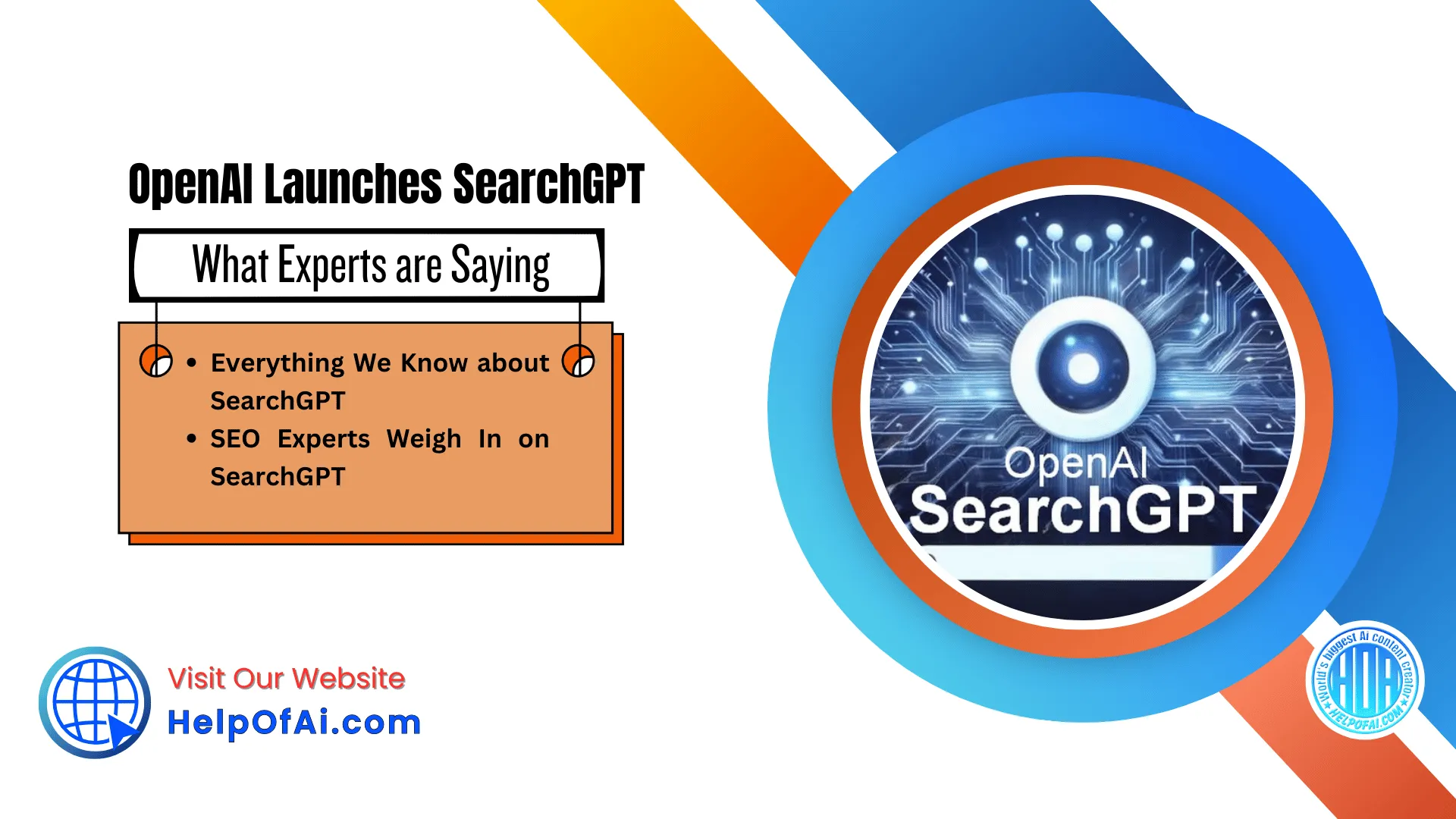Is Google Search on its way out the door? After months of speculation (and denial by Sam Altman), OpenAI finally announced SearchGPT, its AI-powered search engine.
Some say this is just a competitive play against Google while others believe this may usher in a new era of search.
Here’s everything we know about SearchGPT and what SEO experts are saying about it.
Everything We Know about SearchGPT
SearchGPT, which will be integrated into ChatGPT, is currently in beta testing with a waitlist available.
We’ve known OpenAI’s search engine was coming for months – even when Sam Altman denied it on X. Turns out, we were right, we just had the timing wrong.
All the signs were there, like OpenAI signing licensing deals with publishers left and right.
Here’s why that’s important: Hallucinations are a huge worry when using any AI tool and now that extends to search engines. Most recently, we’ve seen it go wrong with with AI Overviews recommending that users eat rocks and glue, and Bing AI getting facts wrong in its demo.
Next, the launch of AI Overviews has upset many publishers who are scared it will usurp most of their traffic. Google’s tried to quell their fears but unsuccessfully.
Lastly, AI tools have kind of built a bad rap for stealing from publishers. Just last month, Forbes threatened Perplexity with legal action after finding that the AI-powered search engine allegedly ripped off their content without proper attribution.
Then, Wired published a spicy story accusing Perplexity of plagiarizing their story about Perplexity plagiarizing Forbes’ content. Yeah, that also hurt my brain to write.
So, by getting in good with publishers, OpenAI can position SearchGPT as the most credible AI-powered search engine.
ChatGPT has also built a massive base of 100 million active users. The biggest draw to Perplexity, which reportedly only has around 15 million monthly active users, was the ability to use natural language in your query.
Before Perplexity and AI Overviews, getting straightforward answers to complex questions was almost impossible.
Say I asked Google, “Is there a federal law regulating AI in the U.S.,” I’d have to comb through a list of articles covering legislation in the U.S. to get my answer.
Perplexity and AI Overviews changed that. With SearchGPT coming and the playing field now level, could SearchGPT beat out the other engines?
SEO Experts Weigh In on SearchGPT
I asked a few SEO experts at HubSpot about their take on SearchGPT – opinions were pretty mixed.
Senior Technical SEO Specialist Sylvain Charbit is optimistic it’ll make the search landscape better.
“Many search engines are very similar in looks and functionalities to Google, but OpenAI will hopefully break this and provide a different angle, different results, hopefully of a higher quality,” he says.
He believes giving Google some healthy competition will lead to massive improvements to the search landscape. Not everyone’s convinced.
Aja Frost, senior director of Global Growth at HubSpot questions if SearchGPT is any different from ChatGPT 4o.
“ChatGPT with 4o already browses the web and provides citations, she sats, “this feels like a branding exercise, a shot across the bow at Google.”
But what does it mean for publishers? Senior Marketing Manager Daniela Lopez Rubina says content marketers are changing their thinking to see search as a behavoir, rather than a channel.
“Chat-based search engines are great at answering top-funnel questions, comparing one or multiple products against each other, and making long, technical information easy to understand,” she says, “but users still need to use websites for detailed information, especially for important purchases.”
As a result, she says the focus is now on meeting users’ needs quickly and making it easier for them to find answers.
“We’re also putting more focus on content based on knowledge and experience, showing its importance through structured data, and changing our approach with small tools, community forums, and other formats to meet searcher needs in their favorite way,” Rubina adds.
That said, product SEO expert Victor Pan believes that while everything changes, everything also stays the same.
“While where people search can change, the reason why they search doesn’t. The relationship between information retrieval and search optimization remains the same regardless of the medium or platform,” he says.
Pan continues, “Where there is attention to an algorithm, you can bet that an SEO will figure out how to record it, run an experiment, and see if the results can be influenced.”
So, will SearchGPT change the game entirely? It’s too early to say but it probably won’t be as dramatic as we think.

